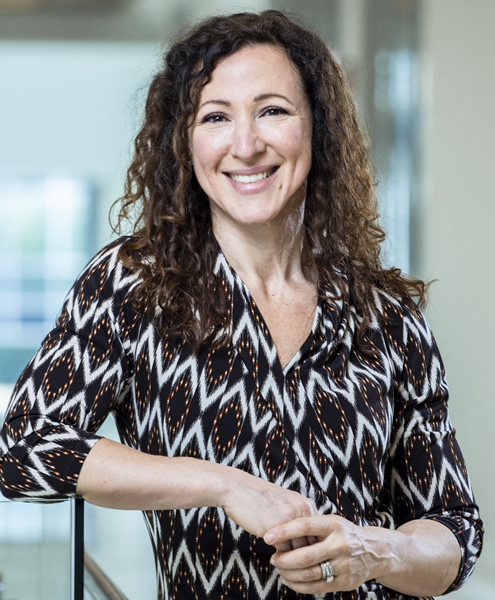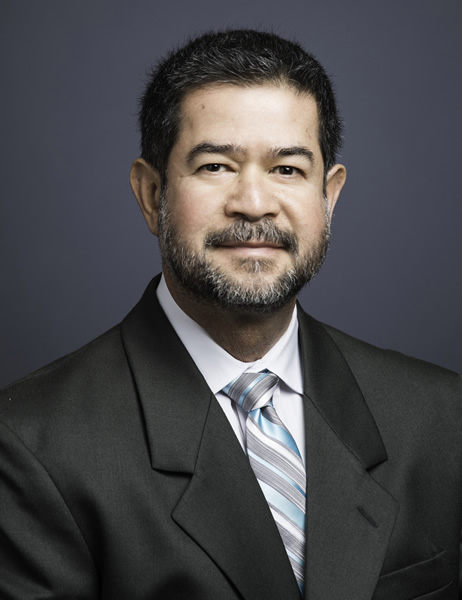Mason’s Tutors to Teachers Program is Helping to Close Learning Gaps Post-Covid
April 22, 2024
A unique program known as “Tutors to Teachers,” established in October 2020 within the School of Education at George Mason University, started out with the goal of having college students provide free tutoring to school-aged children in Virginia public schools who experienced significant loss in learning because of the Covid-19 pandemic. Since it began, the Tutors to Teachers program has played a critical role not only in stemming the sharp declines in student achievement scores post-Covid, but also being proactive in addressing the critical shortage of teachers in Virginia. This innovative program provides Mason students with training that will make them more successful in tutoring children in K-12 public schools. The program also exposes Mason students to the immense satisfaction that can be derived from working with children in a public-school setting and it is structured in a way that will motivate many of them to enter the teaching profession as a career. In doing so, Mason’s Tutors to Teachers initiative is creating a pipeline of future educators.
Federal Work Study Program Funds Could be Used to Pay College Students Who Tutor in Virginia’s K-12 Public Schools
College students participating in the Tutors to Teachers program are eligible to receive payment for their tutoring services under the federal work study portion of their financial age package. This is the result of the ongoing dialogue between the College of Education and Human Development (CEHD) leadership and faculty with administrators of the federal work study program at Mason. These discussions have highlighted the significant role that the Tutors to Teachers program has played in closing the learning gap of children in K-12 schools in Virginia while providing college students a glimpse into the world of teaching. The program’s mission is very aligned with the Biden Administration’s “National Partnership for Student Success (NPSS)” which calls for colleges and universities to use at least 15% of their federal work study funds for college students employed in NPSS roles, such as tutors. In announcing its agenda earlier this year on improving student achievement, the Administration stated that college students can work in schools and directly with students to provide critical support while also learning more about education as a future profession.

CEHD Dean
Dr. Ingrid Guerra-López
Commenting on Mason’s Tutors to Teachers initiative, CEHD Dean Dr. Ingrid Guerra-López stated, “This innovative and unique program offers Mason students a meaningful way to give back to the community and allows them the opportunity to finish their degree program with the support of federal work study funds. Students in this program can take pride in knowing they are filling a critical need by helping children in Virginia K-12 public schools overcome the learning deficit many of them suffered due to the pandemic. We hope that once our tutors experience the joy of working with young learners through this program, many of them will make this their life mission and choose teaching as a career.”
Mason’s Tutors to Teachers initiative is part of a partnership that is aimed at remedying Covid learning disruptions in Virginia public schools

Dr. Roberto Pamas
Mason’s Tutors to Teachers initiative was launched at the height of the Covid pandemic when the education community in Virginia was searching for a way to address the disruption to learning that had affected elementary and middle school students, especially those in economically disadvantaged communities. It was during this time that Roberto Pamas, professor in Mason’s Education Leadership program and Director of Mason’s Office of Teacher Preparation, became the driving force in what would become a partnership between Mason, Northern Virginia Community College, and a nonprofit organization known as EduTutorVA. Through this partnership, Pamas was instrumental in developing a model where college students could provide free tutoring services to children attending Title 1 schools in low-income communities who were at risk of falling below grade level benchmarks. College students receiving financial assistance through the federal work study program could be paid for their tutoring services using a portion of those funds.
In its first year, EduTutorVA was able to provide free, virtual tutoring to children in twelve Title 1 schools in multiple Northern Virginia school districts (Fairfax, Arlington, and Alexandria City). Twenty-seven college students delivered this tutoring, including 25 from Mason and 2 from the Northern Virginia Community College ADVANCE program, which allows students to transition into a 4-year degree program at Mason.
Since then, EduTutorVA has experienced significant growth with the participation of more than 300 college students from 14 different higher education institutions which has allowed the organization to expand its reach to include Title 1 schools in Virginia’s Prince William County. Sixty college students from Mason now tutor with EduTutorVA (twice the number that EduTutorVA started out with in its first year) and half of these students receive federal work study financial assistance.
Commenting on the expansion of EduTutorVA, Pamas stated, “This partnership grew out of an idea that initially involved only two schools—George Mason University and Northern Virginia Community College. Now, there are 14 different colleges and universities participating in this endeavor. That is an accomplishment and a demonstration of this model's success.”
The model upon which Mason’s Tutors to Teachers program is based where college students who tutor children in K-12 public school students can be paid through federal work study program funds, is being adopted by other colleges and universities in Virginia. Pamas says that Mason was a trailblazer in developing this model and he suggests that it could be a prototype for other colleges and universities to follow nationwide.
Federal grant provides funding for formal training of Mason students in the Tutors to Teachers program
The model’s rapid success highlighted the need to provide more formal, structured training to college students who were tutoring as part of this initiative. Mason School of Education faculty saw this as an opportunity where they could channel the motivation demonstrated by these students into getting them interested in entering the teaching profession as a career. CEHD faculty and leadership worked with the offices of Senators Mark Warner (D-VA) and Tim Kaine (D-VA) who were instrumental in securing designated funding of $1,950,000 in support of a three-year federal grant for Mason’s Tutors to Teachers program. This provision was enacted into law on December 22, 2022, as part of the FY 2023 omnibus appropriations package. The intent of this grant was to facilitate the establishment of a pipeline of future teachers to meet the shortage of educators in Virginia that was exacerbated by the Covid-19 pandemic.
Under this federally funded grant, Pamas collaborated with Anastasia Kitsantas, professor in Mason’s Educational Psychology program, in developing a program of formal training for students in the Tutors to Teachers initiative. Pamas indicated that this training is especially important because the Tutors to Teachers initiative is multidisciplinary and includes students from all ten colleges across the university, not just CEHD.
Pamas explained that this grant will make it possible to determine whether the teaching methodologies provided to the college students through the training is helping them become more successful in tutoring children in K-12 public schools. He added, “Since we are recruiting from all different colleges at Mason, even if these students had no intention of being a teacher, we will be able to measure whether working as tutors with children in K-12 public schools motivates them to go into the education profession.”
Some 63 Mason students are close to completing the training funded by this grant, which is now ending its first year. A second cohort of Mason students is now being recruited to begin training next fall. In all, the grant will support the training of 200 Mason students who will be working simultaneously as tutors in public schools.
“As a formal principal who worked in a school district, I know how challenging it is to recruit teachers,” Pamas stated. “However, here is a way for us to tap into a potential pool of candidates by channeling their motivation to become teachers. Every school district in the country is talking about the shortage of teachers, and this is a way to open the eyes of our students. By the end of the three-year grant period, we will have reached 200 students. Even if one-third of those individuals become teachers, we will have created a pool of wonderful, diverse candidates wanting to enter the teaching profession.”
Mason student tutors work with Title 1 Schools in the Commonwealth outside of Northern Virginia where there is a greater need
Pamas notes that outside of a few exceptions, the overwhelming majority of the Mason students receiving the training under this grant are tutoring in schools other than those served by EduTutorVA. Among these are elementary and middle schools in Franklin City located in the Tidewater area of Virginia, where most K-12 students are eligible for free or reduced school lunches. Plans for the 2024-2025 school year also call for these Mason tutors to work with children in Frederick County, Virginia schools instead of Prince William County, which is already served by EduTutorVA. In discussing these changes, Pamas emphasized, “We understand that the Northern Virginia area has many resources and that is the reason why we want to reach out as far as possible to other areas in the Commonwealth.”
All told, the total number of Mason students working as tutors at elementary and middle schools in underserved communities in Virginia is 123, inclusive of those who are working in school districts served by EduTutorVA and those who are working in schools outside of the EduTutorVA service area. Pamas is confident that these numbers will continue to grow as word of the success of the Tutors to Teachers program becomes widely known throughout the Commonwealth and beyond.
